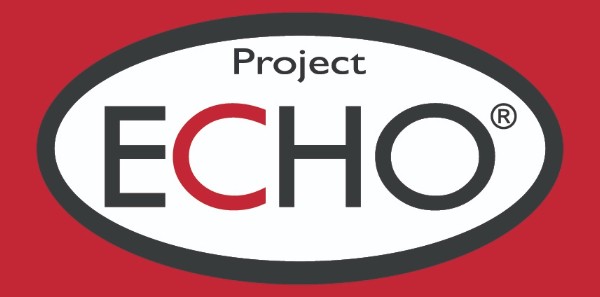ECHO Opportunities

Using proven adult learning techniques and interactive video technology, the ECHO Model™ connects groups of community providers with specialists at centers of excellence in regular real-time collaborative sessions.
The sessions, designed around case-based learning and mentorship, help local workers gain the expertise required to provide needed services.
Providers gain skills and confidence; specialists learn new approaches for applying their knowledge across cultural and geographical contexts. As the capacity of the local workforce increases, lives improve.
Weitzman ECHO Childhood Trauma 2025 (Accepting Waitlist Applications)
Applications for 2025 are now closed. If you are interested, you may register to join the waitlist. Please reach out to us at Integration@TheNationalCouncil.org with any questions.
Lead: Weitzman Institute
Weitzman ECHO Childhood Trauma for Integrated Primary Care connects primary care medical, behavioral health and school-based health providers to subject matter experts to improve care for youth experiencing trauma. This 12-session program will assist providers with strategies to assess, treat and support children, adolescents and their families who are experiencing trauma.
This ECHO meets April through August 2025. For more information regarding ECHO overview, schedule, faculty and accreditation, visit the program website.
Strengthening Integrated Care for Rural Youth (Past)
This ECHO has concluded. Please reach out to us at Integration@TheNationalCouncil.org for more information.
Lead: Center of Excellence for Integrated Health Solutions
Through a safe and supportive environment that prioritizes peer-to-peer learning and interactive training, this ECHO focuses on building provider knowledge and improving organizational practices to support youth in rural communities who are at greater risk of mental health and substance use challenges, including suicide ideation and attempts.
Advancing General Health Integration ECHO (Past)
This ECHO has concluded. Please reach out to esmali@montefiore.org for more information.
Lead: Center of Excellence for Integrated Health Solutions in partnership with Montefiore Care Management Organization
The goal of this ECHO is to bring together industry leading experts and community behavioral health (mental health and substance use treatment) organizations to explore challenges, innovative opportunities, evidence-based solutions and pragmatic general health interventions that facilitate access to quality medical care. Through a safe and supportive environment, this ECHO series will include monthly peer-to-peer learning, interactive training and education to promote knowledge growth and generate long term strategies to advance general health integration and improve the overall wellbeing of clients with co-morbid behavioral health and general health conditions.
University of South Alabama (USA) Substance Use Disorder (SUD) teleECHO (Past)
This ECHO has concluded. Please reach out to us at Integration@TheNationalCouncil.org for more information.
Lead: University of South Alabama (USA)
The goal of the USA Substance Use Disorder (SUD) teleECHOTM series is to create a collaborative of providers and experts dedicated to increasing knowledge and awareness of treating SUDs. Through this 6-month program, participants will have the chance to engage with other community health provider organizations in peer-to-peer learning and discussions around integration for SUD treatment in primary care settings. This virtual learning environment aims to increase the frontline capacity to provide the knowledge, skills, and self-efficacy to dispel myths around SUD practices and strategies.
Team-based Care ECHO (Past)
This ECHO has concluded. Session recordings and presentations can be accessed here.For more information, please contact integration@thenationalcouncil.org.
Lead: Center of Excellence for Integrated Health Solutions
The goal of this ECHO series is to engage a group of behavioral healthcare providers and organizations in meaningful peer-to-peer learning, through sharing successes and barriers as well as skill building capacity as it relates to the implementation and expansion of team-based care. With a team of experts and the release of the new report titled, Making the Case for High-functioning Team-Based Care in Behavioral Health Care Settings, organizations will build their knowledge of Team-based Care (TBC) key principles and learn the TBC model process and implementation elements.
Weitzman ECHO Alcohol & Smoking; Addressing America’s Silent Killers (Past)
This ECHO has concluded. For more information, please contact integration@thenationalcouncil.org.
Lead: Weitzman Institute
This ECHO will equip primary care medical and behavioral health providers with strategies for addressing problematic alcohol and tobacco use in their patients using an integrated approach. Topics covered included advanced strategies for motivational interviewing, epidemiology and screening, medication assisted treatment, trauma-informed care, and alcohol and smoking use in special populations such as youth and the elderly. This 6-month program will meet twice monthly to connect primary care medical and behavioral health providers over Zoom videoconferencing to a community of peers and subject-matter experts.
Funding for the Center of Excellence was made possible by Grant No. SM090141 from Substance Abuse and Mental Health Services Administration (SAMHSA) of the US Department of Health and Human Services (HHS). The contents are those of the author(s) and do not necessarily represent the official views of, nor an endorsement by, SAMHSA/HHS or the US government.
